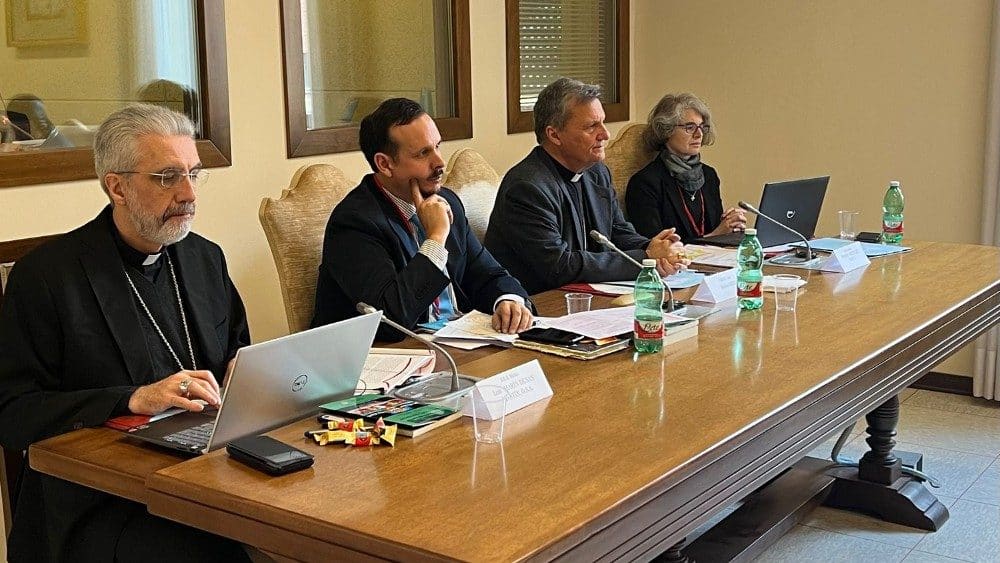The meeting of the Presidents and Coordinators of the Continental Assemblies gathered in Rome on 28-29 November to prepare together the Continental Assemblies, which are the culminating moment of the second stage of the Synod process 2021-2024, concludes this morning. The meeting took place at the offices of the General Secretariat of the Synod.
“I feel gratitude and wonder. I have heard the testimony of a living Church!” was what Cardinal Mario Grech expressed at the end of the meeting, “The sharing of these days shows that the journey is already well underway and that we have much to learn from each other. I have great hope for our task, which is and remains first and foremost evangelisation: the proclamation of the good news of Jesus Christ. This is the synodal path. In this journey we must not be afraid of tensions, which can also be healthy. We must not exclude anyone and listen to everyone! Even those outside the Church’s formal enclosure, because sometimes the Church is present where we did not think we would find it’.
On the afternoon of Monday 28 November 2022, the Holy Father Francis received in audience the participants.
After the initial greeting by Cardinal Jean-Claude Hollerich, Archbishop of Luxembourg and General Rapporteur of the XVI Ordinary General Assembly of the Synod of Bishops, the Presidents or Coordinators of the Continental Assemblies presented the fruits of the process underway in their respective continents or regions, followed by a time of dialogue. The meeting, held in an atmosphere of great fraternity, lasted two hours.
Below is Cardinal Jean-Claude Hollerich’s address of greeting.
Your Holiness, thank you for taking the time to receive us and to give us your advice for the synodal process.
With the continental phase of the process we begin our missionary discernment. With this stage of the Synod we are, in fact, already experiencing a first universal dimension of the process. This stage says, in fact, that the different Churches must not be isolated in their journey and the circular dialogue of the continental assemblies will benefit the Churches of all continents.
Your Holiness, a synodality that wants to be Catholic needs the care and advice of Peter. We need you, because we need a healthy indifference that bears witness to freedom in the Spirit, but then because we also notice some temptations on this road.
And I would like to talk about a temptation we sometimes see in the media: it is the temptation of ‘politicisation’ in and of the Church, that is, living and thinking the Church with the logic of politics. Some have an agenda for the reform of the Church; they know very well what needs to be done, and they want to use the synod for that purpose: this is instrumentalising the synod. This is politicising. On the opposite side are – to borrow your word – the ‘indietrists’ who do not understand that a true Catholic tradition evolves while remaining a tradition in its time. They too would like to put the brakes on the synod process. We, on the other hand – and we heard this morning in our work – we want to be able to enter into a true discernment, an apostolic, missionary discernment, so that the synodal Church can carry out its mission in the world. We want to walk together, with you and above all with the Holy Spirit and with Jesus, in order to mend our Church.










